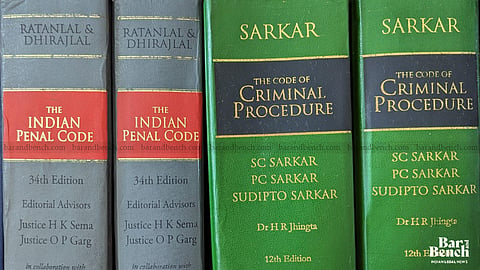
- News
- Columns
- Interviews
- Law Firms
- Apprentice Lawyer
- Legal Jobs
- हिंदी
- ಕನ್ನಡ

In a pathbreaking development, the Central government is all set to overhaul the criminal laws in the country by replacing the Indian Penal Code (IPC) of 1860, Code of Criminal Procedure (CrPC) of 1973 and the Indian Evidence Act of 1872.